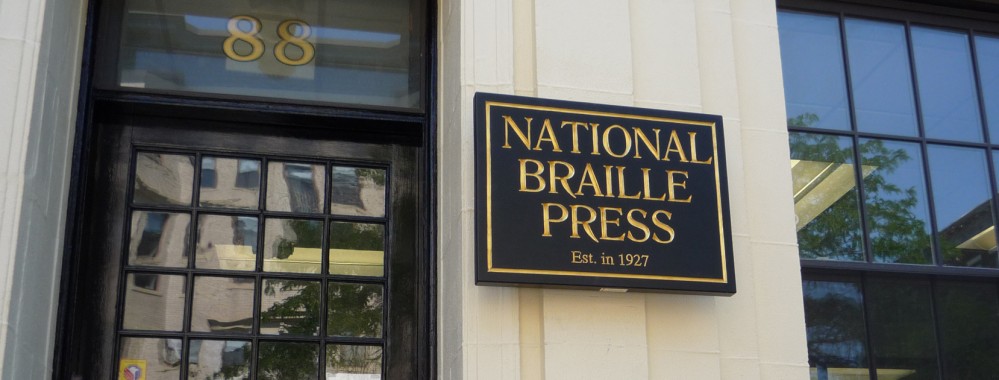I bought my first iPhone 4S only after downloading the first of NBP’s great books on the subject in 2011. Just three weeks ago, I was visiting my youngest son,  David, in New York City and we decided to trek to the big Apple store in Grand Central Station so I could finally consider an upgrade to the iPhone 5S. I really wasn’t sure I wanted to upgrade just yet, but having a really experienced user with me to perhaps interpret anything that the salesperson was doing would be a help.
David, in New York City and we decided to trek to the big Apple store in Grand Central Station so I could finally consider an upgrade to the iPhone 5S. I really wasn’t sure I wanted to upgrade just yet, but having a really experienced user with me to perhaps interpret anything that the salesperson was doing would be a help.
Upon entering the store, David says “There’s a blind guy with a guide dog working the sales counter.”  So naturally, we walked up to him and I began talking to him about the pros and cons of upgrading my phone. After a minute, he stops me and asks “What’s your first name?” When I tell him, he grabs my hand, “It’s Kyle Street from last summer’s ACB convention.”
So naturally, we walked up to him and I began talking to him about the pros and cons of upgrading my phone. After a minute, he stops me and asks “What’s your first name?” When I tell him, he grabs my hand, “It’s Kyle Street from last summer’s ACB convention.”
My partner Kae and I had gone out with them for a great dinner last summer in Columbus; I had never met Kyle or his wife Chevonne before. He had been working at the Apple store in Raleigh – Durham at the time and transferred up to the New York City store the first of the year.
Finding Kyle at work ready to knowledgeably upgrade my phone made the decision really easy. For the next 45 minutes, we talked about the most useful blind friendly apps, what we liked and didn’t, and he gave me some pointers on using the 5S from our shared unique perspective. Kyle’s boss came over to listen and watch and get educated. Apparently, she had never seen him interact with a blind customer. We talked about NBP’s books and the braille screen protector guide on my phone, resources with which she was not familiar.
Nothing really unusual, right? Just a customer and a knowledgeable salesperson engaging in a transaction. Or, a great example of blind empowerment.
